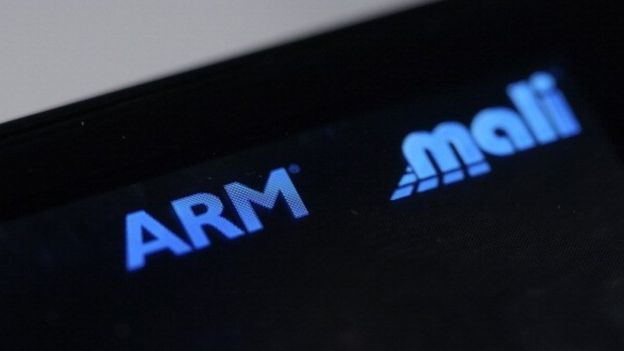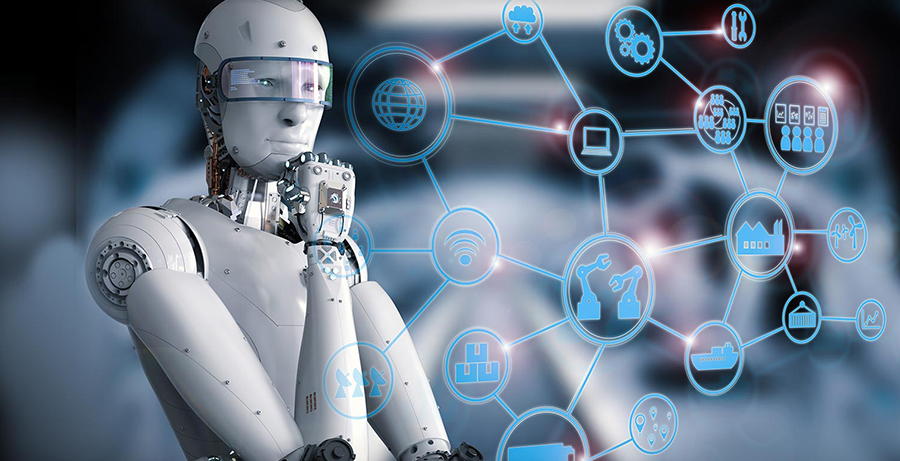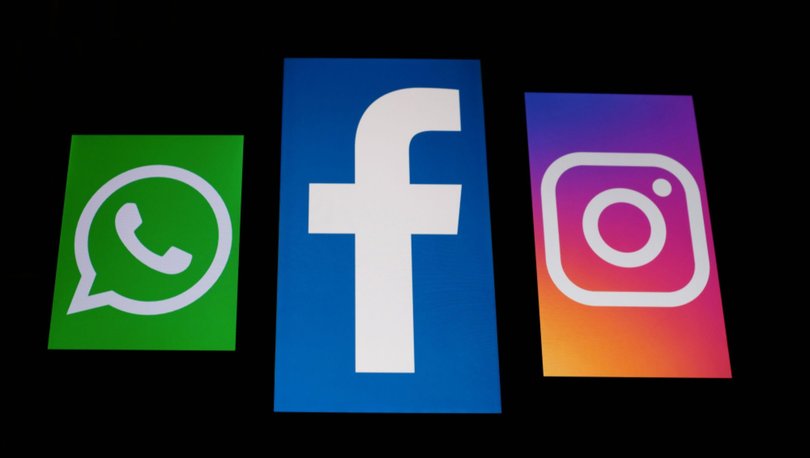UK technology firm ARM Holdings is to be bought by Japan’s Softbank for £24bn ($32bn) it confirmed on Monday.
The board of ARM is expected to recommend shareholders accept the offer – which is around a 43% premium on its closing market value of £16.8bn on Friday.
The Cambridge-based firm designs microchips used in most smartphones, including Apple’s and Samsung’s.
ARM, which was founded in 1990, employs more than 3,000 people.
Shares in the UK technology firm surged by 45% at the open of the London Stock Exchange to 1,742.85p per share, adding £7.56bn to ARM’s market value.
Japanese entrepreneur
ARM said it would keep its headquarters in Cambridge and that it would at least double the number of its staff over the next five years.
Softbank is one of the world’s biggest technology companies and is run by its founder, Japanese entrepreneur Masayoshi Son.
It has previously acquired Vodafone’s Japanese operations and the US telecoms company Sprint. The $20bn deal was the biggest foreign acquisition by a Japanese firm at the time.
The new deal will be funded by Softbank’s own cash reserves and a long term loan from Japan’s Mizuho Bank.
Analysis: Rory Cellan-Jones, BBC technology correspondent:
Image copyrightGETTY IMAGES
It’s hard to exaggerate just how important ARM is to the UK tech sector – and the shock many are feeling this morning at the news that it is about to lose its independence.
Its brilliance was to realise that if chips were about to come with everything, you didn’t have to make them – designing them was the key.
Five years ago, Cambridge was home to at least three world-beating UK-owned technology firms, ARM, Autonomy and Cambridge Silicon Radio (CSR).
Then Autonomy was swallowed up by HP in an ill-fated deal, last year the chipmaker Qualcomm bought CSR, and now the biggest and best, ARM, is about to have a Japanese owner.
And in Softbank, ARM may well have found a good parent.
The Japanese firm bought France’s Aldebaran robotics business and has gone on to give it a global profile.
But there will still be sadness this morning in Cambridge, and beyond, that Britain’s best hope of building a global technology giant now appears to have gone.
Softbank-ARM deal is a bet on the future
‘Sad day’
Softbank intends to preserve the UK tech firm’s organisation, including its existing senior management structure and partnership-based business model, ARM said.
Masayoshi Son, chairman and chief executive of Softbank, said: “This is one of the most important acquisitions we have ever made, and I expect ARM to be a key pillar of SoftBank’s growth strategy going forward.
Jump media player
Media player help
Out of media player. Press enter to return or tab to continue.
Media captionARM founder: ‘Sad day for technology in Britain’
However, the co-founder of ARM Hermann Hauser said: “This is a sad day for me and a sad day for technology in Britain.”
“ARM is the last British [technology] company that has a global reach,” he said.
“It gave Britain real strength. It was a British company that determined the next generation microprocessor architecture.”
Analysis: Simon Jack, BBC business editor:
Image copyrightGETTY IMAGES
ARM Holdings is arguably the most precious jewel in the crown of British technology, its microchip designs are used in billions of devices.
Sources close to the deal say the Japanese company considers ARM well placed to exploit the so called “internet of things” which may see microchips embedded in whole new categories of household and business devices.
Prime Minister Theresa May recently questioned whether foreign takeovers of UK firms are always in the national interest. However, Softbank has committed to doubling the size of ARM’s UK-based workforce over the next five years and new Chancellor Philip Hammond welcomed the deal.
That allure has been boosted by the fall in the value of the pound since Brexit – making UK targets cheaper and many industry watchers are predicting a new wave of foreign takeovers.
ARM has until recently argued that its future was better served as an independent company. However, Stuart Chambers, ARM chairman since March 2014, is no stranger to making it big in Japan. He was responsible for selling Pilkington, another blue chip UK company, to Nippon Sheet Glass in 2006.
‘Attractive destination’
Prime Minister Theresa May said the deal between Softbank and ARM Holdings showed the UK economy could be successful after the country voted to leave the European Union.
A spokeswoman for the prime minister said Mrs May believed the deal was in the country’s national interest – a gauge that she will use to assess any future foreign takeovers.
“This is good news for British workers, it’s good news for the British economy, it shows that, as the prime minister has been saying, we can make a success of leaving the EU,” the spokeswoman added.
Dan Ridsdale, analyst at Edison Investment Research, said “An increase in inbound merger and acquisition activity was one of the obvious consequences of Brexit and weakened sterling, but few expected it to manifest itself so quickly or at so large a scale.”
Former Business Secretary Vince Cable told the BBC there was usually very little the government could do to prevent takeovers.
“We don’t have a system of defence against takeovers if they prove to be unsatisfactory,” he said.
Mr Cable added the government had few legal powers to stop takeovers unless it could be demonstrated there was a national security issue.
source: bbc







